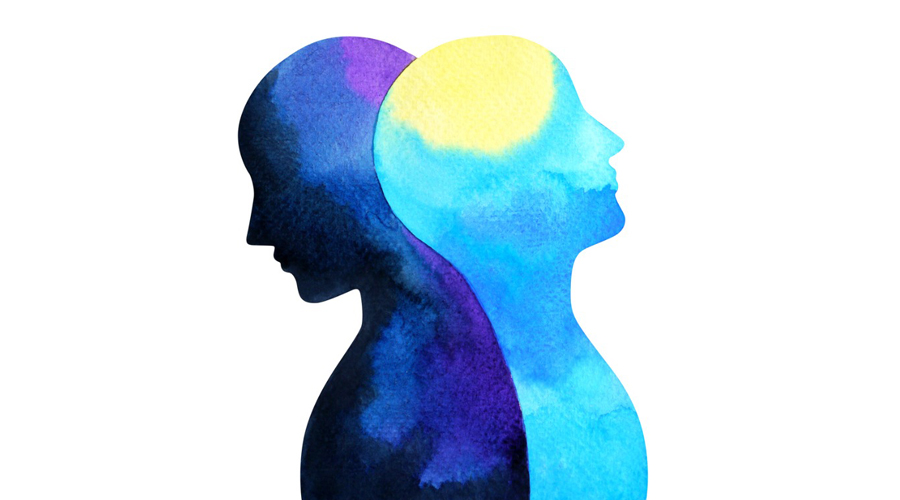New Year, New Skills: Advanced Techniques for Mental Health Professionals
By Dr. Kate Truitt
As we continue through 2024, it’s only natural to reflect on the past and set intentions for the future. For mental health professionals, this time of year can also bring about feelings of excitement and curiosity as they look for ways to improve their skills and better serve their clients. The good news is there’s no shortage of options for mental health professionals looking to enhance their practice.
In this blog post, we will dive into some advanced techniques that are gaining popularity in the mental health field, providing you with valuable insights on how to elevate your practice and deepen your impact on those you serve. Whether you’re a seasoned clinician or just starting out in your career, these techniques will challenge you to think outside the box and expand your therapeutic toolbox.
So, grab a cup of coffee or tea and join us as we explore some exciting new skills for mental health professionals in the upcoming year.
Understanding the Importance of Continuous Learning in the Mental Health Field
As a mental health professional, you understand the importance of staying up to date on current research, best practices and interventions. But continuing your education isn’t just about being the best clinician you can be, it’s also about the well-being of your patients.
By continuously learning, you’re able to offer your patients the most effective and evidence-based treatments available. Whether it be attending trainings or reading relevant literature, staying engaged with the latest developments in the field allows you to provide the highest quality care to those who are seeking your expertise.
No matter what stage you’re at in your career, committing to continuous learning ensures that you’re equipped with the knowledge and skills necessary to support your patients in achieving their goals and reaching their full potential.
Exploring New Techniques and Approaches for Different Types of Therapy
As we continue to learn more about the intricacies and complexities of the human mind, therapy approaches are also evolving. While tried-and-true techniques like cognitive-behavioral therapy and psychoanalysis continue to be widely used, there is an exciting frontier emerging in the form of other healing modalities, such as the psychosensory techniques.

One potent example of this is the Havening Techniques. These techniques, grounded in scientific research, harness the power of touch and sensory input to alleviate distress and trauma. The Havening Techniques, also known as Amygdala Depotentiation Therapy (ADT), are a set of innovative strategies that use sensory input, primarily through touch, to alter thought patterns and responses. They aim to change the brain’s landscape and reduce the impact of distressing memories or traumatic events. The process involves applying a simple touch to the arms, face, and hands, creating a state of ‘haven’ or safety around distressing experiences. This method has been found to depotentiate, or remove, the emotional charge from traumatic events encoded in the amygdala.
If this is your first time hearing about the Havening Techniques, I invite you to watch this 4-minute Introduction to the Havening Touch psychoeducational video
The benefits of using Havening Techniques are manifold. Firstly, they are an effective tool for alleviating symptoms of trauma, anxiety, depression, and stress. By using sensory input to change brain chemistry, they can help attenuate or even eliminate distressing emotions associated with particular memories. Moreover, these techniques are empowering for clients as they can be self-administered, fostering a sense of control over one’s emotional state. Finally, the Havening Techniques can be integrated with other therapeutic approaches, making them a versatile tool in the mental health professional’s toolkit.
In addition to the Havening Techniques, there are also other innovative approaches that can be used in therapy. For example, Eye Movement Desensitization and Reprocessing (EMDR) is a technique that uses eye movements to stimulate the brain’s natural healing process and reprocess traumatic memories. Similarly, neurofeedback involves training patients to control their brainwave patterns through real-time feedback, helping them to regulate their emotions and reduce symptoms of anxiety and PTSD. These techniques all use the brain’s neuroplasticity – its ability to change and rewire itself – to promote healing.
In this psychoeducational video , you’ll notice the effects within minutes as the combination of cognitive behavioral therapy and havening techniques work immediately to reduce anxiety and create calm.
With research backing their efficacy, it’s clear that new approaches like these can expand the therapeutic toolkit – providing more options for individuals seeking support. As we look to the future, it’s exciting to imagine what other innovative techniques might be developed to help us better understand and care for our mental health.
Incorporating Technology into Therapy Sessions for More Effective and Convenient Care
Integrating technology into therapy sessions can not only make counseling more effective but also convenient. With teletherapy becoming more widely available, clients can attend a session from the comfort of their own home, making it easier to keep up with scheduled appointments. Additionally, technology-based tools like online journals or mood tracking apps can assist in managing emotions outside of sessions and provide therapists with valuable insights into their client’s state of mind.
While it’s important to maintain a personal connection and focus on building rapport during sessions, integrating technology in therapy can be an excellent way to enhance the experience for both client and therapist.

The Ethical Considerations When Implementing New Technologies
One of the most pressing ethical considerations in implementing new technologies is the balance between innovation and privacy. As technologies grow more sophisticated, they often require access to large amounts of personal data. This data collection can raise serious privacy concerns. There is a delicate tension between using data for technological and even medical advancements and respecting individual privacy. It is important to create policies and guidelines that protect individual data and privacy rights. A failure to do so risks eroding trust in the technology and its providers, as well as potential legal repercussions.
It’s equally crucial to ensure that the technologies are as inclusive as possible and don’t inadvertently contribute to exacerbating inequalities in society. Hence, ethical considerations must always be at the forefront when implementing new technologies.
Another key aspect of ethical implementation is transparency and accountability. As technology becomes more integrated into our daily lives, it’s vital that users are fully aware of how their data is being collected, used, and shared. This includes clear communication about the purpose of data collection and obtaining consent from individuals before using their data for any purpose other than its original intent.
Transparency also requires accountability for any misuse or mishandling of data. Companies and organizations implementing new technologies must have strict protocols in place to prevent and address potential breaches of data privacy or security. This not only protects individuals but also promotes trust in the technology and its providers.
Using Creative Therapies Such as Art of Music Therapy for a More Holistic Approach
When it comes to taking care of our mental and emotional well-being, traditional talk therapy isn’t always the answer. That’s where creative therapies like art or music therapy come in. These types of therapies bring a more holistic approach to healing by tapping into different forms of expression. Whether it’s painting, writing poetry or playing music, creative therapies allow individuals to explore their emotions and thoughts in a unique and fulfilling way.
Not only can creative therapies be a source of relaxation and stress relief, but they can also help individuals better understand themselves and their experiences. Incorporating creative therapies into treatment plans can provide a well-rounded approach to healing and lead to more positive outcomes overall. This is because creative expression can have healing effects in trauma therapy.
Collaboration with Other Professionals and Interdisciplinary Approaches to Treatment
Collaboration with other professionals and taking an interdisciplinary approach to treatment can greatly benefit patients. It allows for a more well-rounded approach to healthcare, ensuring that all aspects of a patient’s condition are considered. Professionals from different fields bring unique perspectives and skill sets to the table, leading to a more comprehensive and effective treatment plan.
By collaborating and sharing information, healthcare professionals can reduce the risk of miscommunication and improve patient outcomes. This approach also encourages continued learning and growth among professionals, ultimately leading to higher standards of care. As healthcare continues to evolve, it is important for professionals to work together in order to provide the best possible outcomes for their patients.
Attending Conferences and Workshops to Gain New Insights and Skills
Whether you’re a student or a professional, these events provide a platform for learning, networking, and exchanging ideas with like-minded individuals. You’ll have the opportunity to meet experts in your field, listen to their experiences, and learn about the latest industry trends and developments. Additionally, attending conferences and workshops allows you to interact with peers, share insights, and get feedback on your work.
That being said, I invite you to join us on the following workshops:
Brain in Crisis Training

Register through this link.
New Opportunities in the Treatment of the Highly Sensitive Person

Get 30% OFF using code HEALING through this link.
Long-Term Impact of Continuously Developing One’s Skills on Both Personal Growth and Client Outcomes
For mental health professionals and advocates, the long-term impact of continuously honing and expanding their skills cannot be overstated. Personally, it contributes to a sense of achievement and professional satisfaction, as they are better equipped to assist their clients, continually pushing their own boundaries of expertise. Additionally, it fosters resilience, as the process of learning and mastering new skills often involves overcoming challenges and adapting to new situations.
From the clients’ perspective, professionals who are committed to continuous learning are more likely to provide cutting-edge, evidence-based care. Their dedication to personal growth often translates into improved client outcomes, as they are able to apply the latest research findings and therapeutic techniques to their practice. Moreover, their commitment to professional development can enhance the therapeutic relationship, as clients may feel more confident and comfortable knowing they are being supported by a provider who is actively working to improve their skills and knowledge.
In addition to traditional forms of education, such as workshops and conferences, professionals can also seek out mentorship opportunities to supplement their learning. Mentors provide valuable guidance and support, offering a wealth of knowledge and experience. They can also serve as role models, inspiring mentees to constantly improve and strive for excellence in their careers. Furthermore, mentorship can lead to valuable networking opportunities, connecting professionals with others in their field and opening doors for future collaborations and career advancements.
The benefits of continuous skill development are not exclusive to the individual professional, but also extend to the organizations they work for. By investing in their employees’ ongoing learning and growth, organizations can foster a culture of excellence and innovation. This can lead to increased employee satisfaction and retention, as well as improved overall organizational performance. Additionally, organizations that prioritize professional development are more likely to attract top talent and maintain a competitive edge in their industry.
Moreover, ongoing training and skill development can play a crucial role in addressing systemic issues within the field of mental health. By staying up-to-date with new research findings and therapeutic techniques, professionals can better serve marginalized communities and individuals who have historically been underrepresented or underserved. By continuously expanding their knowledge and skills, mental health professionals can work towards creating a more equitable and inclusive practice for all individuals seeking support.
The Role of Self-Care in Improving a Therapist’s Ability to Help Their Clients
As a therapist, providing support and guidance for your clients is undoubtedly your top priority. However, in order to effectively attend to the needs of others, it’s essential that you prioritize your own self-care routine. By taking care of yourself physically, emotionally, and mentally, you’ll be able to offer your clients the best version of yourself each session.
Learn how you can use the self-havening practice for self-care and empowered healing by watching this video.
Engaging in self-care practices like meditation, exercise, and relaxation techniques not only help you remain grounded, but also enable you to feel more empathetic towards your clients. Moreover, taking care of yourself fosters feelings of self-worth and value, which in turn translates into a more positive and impactful therapeutic relationship with your clients.
Conclusion
By continuously evolving and adapting our techniques, we can improve both our personal growth and the outcomes of our clients. As mental health care providers, we must continuously seek out new techniques and approaches to better serve our clients. Whether it’s incorporating technology into therapy sessions, using creative therapies, attending conferences and workshops, or collaborating with other professionals, there is no shortage of ways to expand our skills and knowledge. And as we continue to develop ourselves and our abilities, we must not forget the importance of self-care in ensuring that we can provide the best care for our clients.
Additional Mental Health Resources
- Visit our main website at www.drtruitt.com for more blogs and mental health-related services.
- Subscribe to my YouTube channel where you can access psychoeducational and guided meditations.
- Connect with me on TikTok and Instagram where I upload daily content on mental health, psychology, and neuroscience.
Mental Health Books
- Pre-Order my book, Keep Breathing: A Psychologist’s Intimate Journey Through Loss, Trauma, and Rediscovering Life. Part memoir and part scientific exploration, it’s my personal account of profound loss, grief, and life’s challenges, as well as the highs and lows of my healing journey.
- Grab your copy of my book, Healing in Your Hands : Self-Havening Exercises to Harness Neuroplasticity, Heal Traumatic Stress, and Build Resilience. Within its pages are tools we can use to partner with our brain so we can heal the past, create the present, and build the future we want.
References:
- Everett, A. (2023, December 27). New Year’s Resolutions: Building Good Mental Health Habits. SAMHSA Blog. Retrieved from: https://www.samhsa.gov/blog/new-years-resolution-building-good-mental-health-habits
- Abrams, A. (2016 January 6). 10 Strategies for Better Mental Health in the New Year, Good Therapy Blog. Retrieved from: https://www.goodtherapy.org/blog/10-strategies-for-better-mental-health-in-new-year-0106164
- Sutton, J. (2921 September 17). 20 Basic Counseling Skills to Become an Effective Therapist. Positive Psychology Blog. Retrieved from: https://positivepsychology.com/counseling-skills/




















